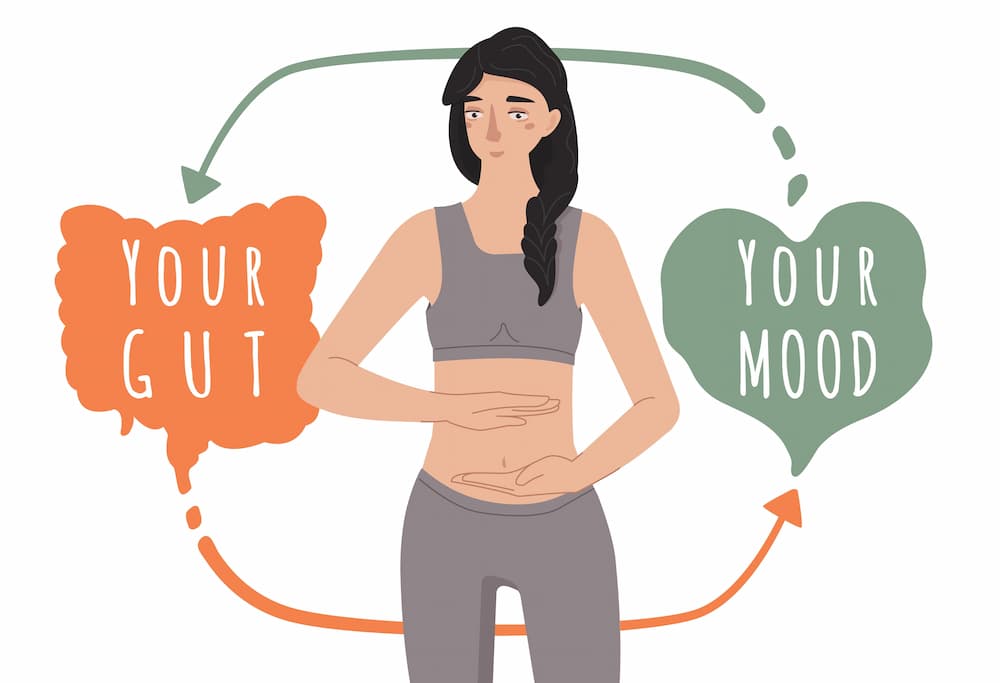6 suggestions that can help you make a positive change for your mental health
Try these 6 suggestions and see if you notice any positive changes (spoiler alert: you will!)
Give yourself an hour in the morning

…or even 30 minutes if that’s really all you can spare. Use the time to set yourself up for the day by doing a short meditation or some stretches, make yourself a nutritious protein-rich breakfast or go for a short brisk walk. Make this time just for yourself, even if it means you have to get up half an hour earlier. Learning to be protective of your own time without feeling guilty will allow you to create boundaries, which is an essential tool when it comes to looking after your mental health. Taking any time at all out during the day to process what’s happening in your mind can also lead to a better night’s sleep, as your brain won’t be waiting for 10pm for its first chance to sort through everything it needs to.
Limit your time on social media

Have you ever had such a busy day that you didn’t have time to get all the things done that you wanted to…but you still managed to scroll through your social media feeds? Social media is full of click-bait, stories we just can’t stop ourselves reading, and before we know it we have lost an hour of our day.
It might not be realistic to give up scrolling completely, but you can set boundaries for yourself around this too, and perhaps only check at certain times of day. Change your phone settings to allow fewer notifications and you will be less tempted to check so often.
Another reason to spend less time seeing what your friends and favourite celebrities are up to is because comparison, as the saying goes, really is the thief of joy. Constantly being bombarded with images of the perfect (airbrushed) body, seeing people on holidays you could never afford and reading lists of all the things you ‘should’ be doing can all add up to make you feel inadequate and like you aren’t good enough. Reading the comments below any picture at all will expose you to trolls and their hateful comments, which is just unnecessary negativity that none of us need in our lives.
Move your body every day
It doesn’t have to be a 3 hour weights session or training for an Ironman, and you don’t need to feel completely exhausted afterwards to reap the benefits, but moving your body every day is one of the best things you can do for your physical and mental health. Getting outside into nature or even a local park is a great way to boost your mood, and sunlight has the added benefit of improving your circadian rhythm (your eyes filter different kinds of light at different times of day so your body knows whether it should be waking up or starting to wind down for the day).
Walking, running, yoga, swimming, resistance training or team sports are all good options, but if you are less mobile then even a very gentle stroll, or some light stretching to the best of your ability will help. Do as much as you are able; something is always better than nothing. Need help with this? Try reading more here: 8 benefits of exercise for your mental health
Look after your gut

People often talk about being ‘worried sick’ or feeling so nervous they have to go to the bathroom, but don’t often make the connection between gut health and brain health. In fact, a healthy gut sets us up for improved mental health, so how can we make sure our digestive system is functioning well? First, we need to make sure we are eating in a way that supports the digestive system, including prebiotics (foods to feed our existing healthy gut bacteria) as well as probiotics (such as the live cultures we see advertised on yogurts, kimchi or sauerkraut), and limiting sugary processed foods.
Secondly, try a sleep hygiene audit. Are you sleeping as much as you should and is the sleep you are getting of a high quality? Being overtired itself is detrimental to mental health, as those of us who have ever tried to achieve anything after a couple of nights of disrupted sleep will know, but lack of sleep can also lead to reduced insulin sensitivity and cravings for all the sugary foods that wreak havoc on your gut.
Thirdly, we should try to make sure we eliminate as much stress from our lives as we can or, if we can’t eliminate it, become more resilient to it. Meditation, hobbies or time with pets if you are an animal lover can all help. Read this article to learn how to deal with stress
Consider your perspective
It’s very fashionable to talk about keeping a gratitude diary or feeling #blessed when things are going well, but it is another thing entirely to truly feel grateful for the good things in our lives that we so often take for granted. Perspective is everything, and learning to shift our perspective can be the key to unlocking new ways of thinking about any obstacles we encounter.
Wherever you are now, take a few moments and list 5 things you are grateful for. It can be anything (this is a practice that gets much easier the more you do it), for example your health, a good friend in your life, a salary that allows you to live in an affluent area, a delicious breakfast… be creative! Next time you find yourself angry or frustrated about something, think of 10 or 20 things you are grateful for and notice how these feelings can help shift your perspective from frustration to gratitude. If your taxi is late, for instance, perhaps be grateful that you are able to walk if you need to, that you can even afford a taxi, that you have a few more moments to spend with your family that morning etc. It takes a little getting used to but if you do it every day it will become second nature and you may even start to notice an improvement in your general mood.
Talk to someone

Sometimes it can help to verbalise our feelings. You may have a close friend or family member that you feel comfortable talking to, or you might feel more inclined to talk to someone you don’t know well such as a trained therapist face to face or on the telephone. Recognising that you need some support is a huge step towards making things better, and mental health is an issue that affects every single one of us so you can feel confident that whoever you choose to talk to will be understanding and that they won’t judge you. If you know someone who you think might be struggling, why not ask them out for a coffee, or suggest watching a movie together. Sometimes just reaching out and making someone feel valued can make more difference than you know.
